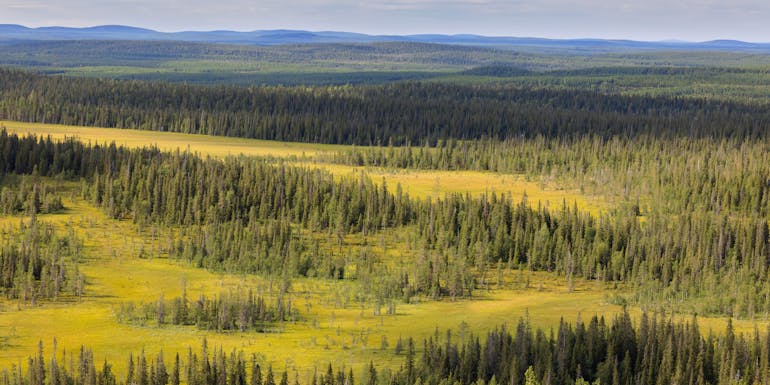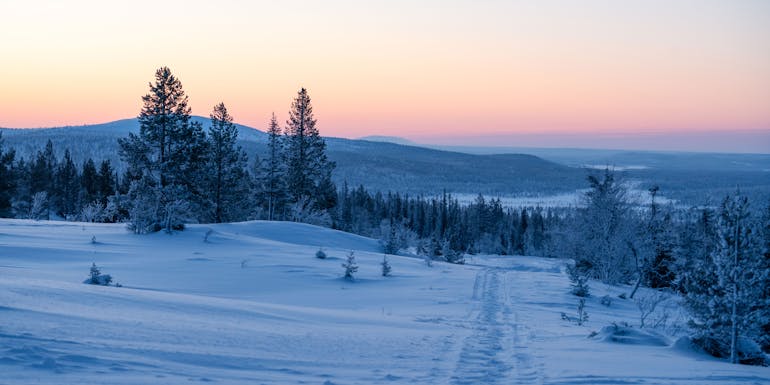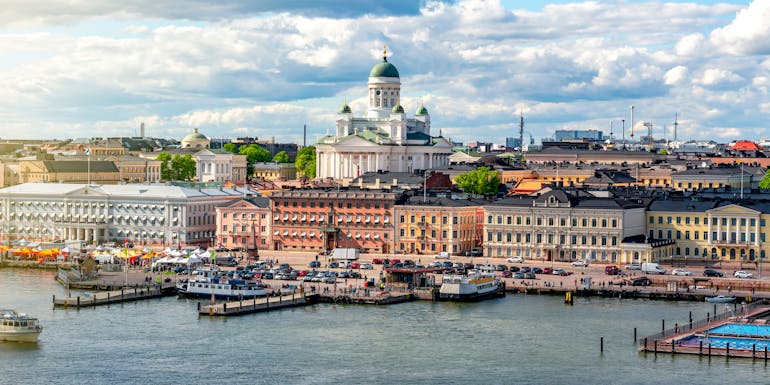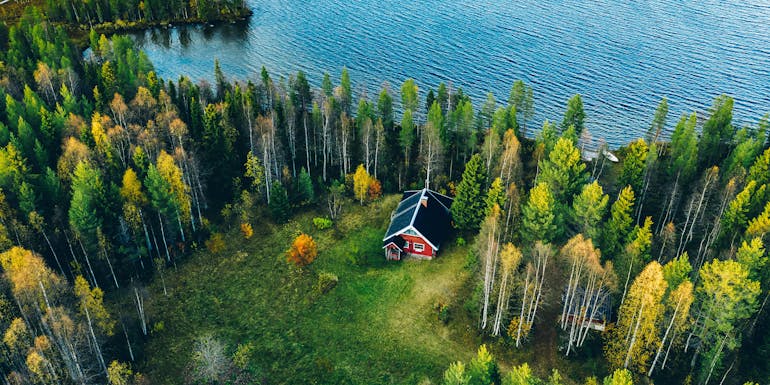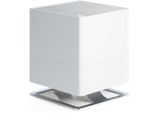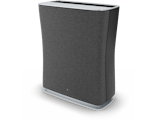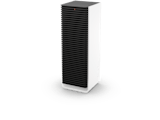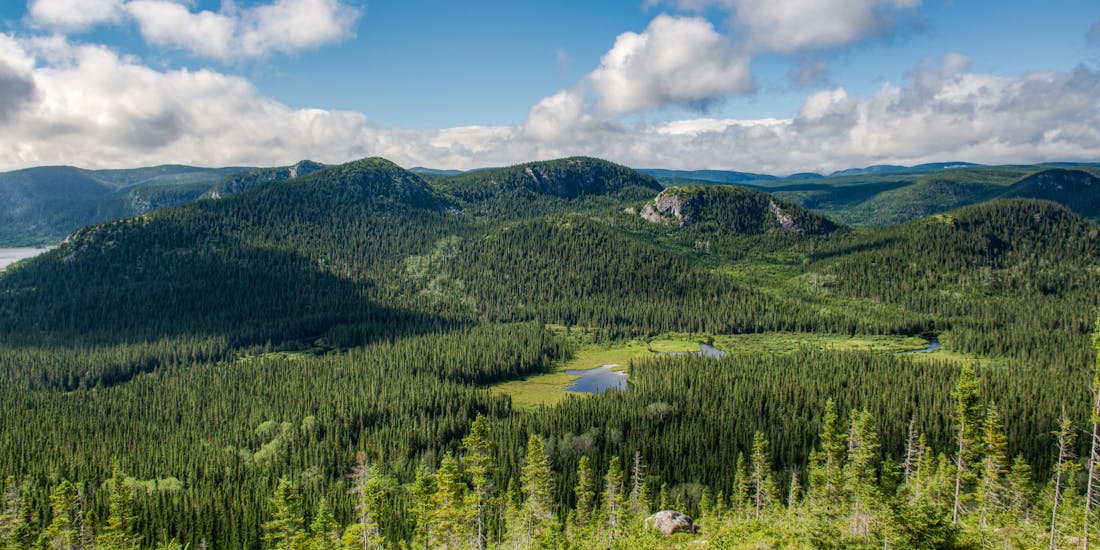
Nadine Walder, 18 September 2023
Public space
The boreal zone and its influence on the indoor climate
The earth can be roughly divided into five main climate zones: the tropics, the subtropics, the temperate zone, the subpolar zone and the polar zone. These climate zones have a direct influence on the environmental conditions on site and on the indoor climate. When constructing buildings, it is of great importance to take the different climatic conditions into account and to adapt the construction measures to the external conditions in order to ensure a healthy indoor climate. Depending on the respective climate zone in which one is located, various indoor air treatment devices can also be useful in addition to the construction method.
In the last blog articles of our blog series on climate conditions worldwide, we focused on different climate classifications and the influence of the temperate zone, the tropical and subtropical zone and the Mediterranean climate on the indoor climate. In this fourth part we will focus on the cold temperate or boreal zone, the influence of the boreal climate on the indoor climate and we will introduce you to the climate conditions in Finland.
Read on to find out:
- Characteristics of the boreal zone: extreme temperature fluctuations and long winters
- The climate in Finland: long winters and midnight sun in summer
- Effects of the boreal climate on the indoor climate
Characteristics of the boreal zone: extreme temperature fluctuations and long winters
The cold temperate or boreal climate zone is a fascinating region with several unique features. It stretches across the northern hemisphere and countries such as Norway, Finland, Siberia, Alaska and Canada are located in it. It is the only ecozone that occurs solely in the northern hemisphere. The boreal zone is further divided into oceanic, continental and high continental subzones. The climate in the boreal zone is strongly influenced by the Arctic cold air.
Extreme temperature fluctuations
One of the most striking features of the boreal zone is the extreme temperature fluctuations between the four seasons. In Eastern Siberia, for example, temperature fluctuations of up to 100 °C can be recorded between summer and winter. Summers in this zone tend to be short and moderately warm. The winter months are long and extremely cold – temperatures as low as -70 °C can prevail in the interior of the continents. The long winters in the boreal zone can last several months and are characterised by ice and snow. Annual precipitation ranges between 250 and 500 mm in most areas.
Rich vegetation and forests
Despite the extreme conditions, the cold temperate climate zone has an amazing diversity of flora and fauna. The vegetation season usually lasts between four to five months. During the vegetation season, long-day and permanent-day conditions prevail, when the sun sets only briefly or never. Large parts of the zone are covered by extensive forests. The taiga covers large areas of the cold temperate zone and consists of larches, firs, spruces and pines. In addition to the taiga, the cold temperate zone also contains extensive bogs, boreal mixed forests, the forest tundra, the mountain taiga and cold temperate rainforests.
People and animals in the boreal zone
The boreal zone is relatively sparsely populated. Over 90 per cent of the zone can still be described as wilderness today. In total, there are only nine cities with more than 200’000 inhabitants in the entire cold temperate zone. Over the centuries, the people living in the cold temperate zone have found ways to adapt to the extreme weather conditions. This can be seen in traditional architecture, heating methods, sauna culture and their way of life in general. The cold temperate zone is home to unique wildlife, including species such as moose, bears, wolves and numerous bird species. The ecosystems are adapted to the climatic conditions and many animal species have developed strategies to survive the cold winter months.
The climate in Finland: long winters and midnight sun in summer
Finland is in the Df group according to the Köppen and Geiger climate classification – continental subarctic or boreal climate. Most of the country has a subarctic climate with cool summers (Dfc climate). Only the southern coast of the country has a humid continental climate with mild summers (Dfb climate) and in the north there are small parts with a tundra climate (ET).
There are four distinct seasons in Finland. As is typical for the cold temperate zone, there are long and cold winters. Temperatures vary between 0 °C and -30 °C and there are frequent temperature fluctuations within a few days. During the winter there is a lot of precipitation, mainly in the form of snow.
Finnish spring is a time of awakening after the long and cold winter months. The temperatures gradually rise, and the days get longer. Due to all the sand used in winter to make the icy roads less slippery, there is a lot of dust in the streets and at the same time the allergy season begins. Many families suffer from allergies and dust in spring, which is why the use of air purifiers is recommended.
Summer in Finland is a time of warmth, sunshine and long days. Temperatures rise to pleasant levels between 10 °C and 30 °C in summer. In hot summers, temperatures can also reach over 30 °C. The Finnish summer is known for the midnight sun when it does not get dark during the night in the northern regions of the country. This allows people to enjoy outdoor activities around the clock. Many Finnish residents have summer houses in the countryside and spend a lot of time there during the summer months.
Finnish autumn is, after all, a time of transition. The temperatures drop and the days become shorter again. Life turns more inward, and people prepare for the coming winter. This includes storing supplies and preparing homes for the cold months.
Finland's climate thus shows a clear seasonal diversity overall, which has a strong impact on people's lives, wildlife and nature. As in the entire cold temperate zone, climatic conditions have a great influence on the indoor climate.
Effects of the boreal climate on the indoor climate
The harsh climate in Finland and other regions of the boreal zone poses special challenges for the indoor climate. During the long and cold winters, people need to heat their flats and houses efficiently. High-quality insulation and modern heating systems are essential to keep the heat inside and reduce energy consumption. In the transitional period, when central heating systems are not yet running, fan heaters can provide comfortable warmth indoors.
At the same time, indoor air becomes very dry in winter, leading to typical symptoms such as dry skin and dry eyes. The use of humidifiers is therefore highly recommended at this time of year to combat the effects of excessively dry indoor air.
The architecture and construction methods in the cold temperate zone are also strongly influenced by the climatic conditions. Traditional houses are designed to provide warmth and shelter for the inhabitants in winter. For example, saunas are common in many Finnish houses and play an important role in coping with the cold and improving well-being.
Due to the extreme temperature differences, different indoor air treatment devices can be used, depending on the season. In addition to fan heaters and humidifiers in the colder season, fans can provide a cool breeze in summer when temperatures are higher. For clean air and against allergies, air purifiers are used in spring and summer.
Overall, it can be said that especially the extreme temperature fluctuations and the long, cold winters have a considerable influence on the indoor climate. Thanks to suitable construction and the use of appropriate indoor climate units, the resulting challenges can be cushioned, and a healthy indoor climate ensured.
In the next and last part of this series, we will present the oceanic climate and introduce you to the climate conditions in the UK.
* This article has been produced in cooperation with the following Stadler Form distributor: Finland - Electro Import Finland Ltd, www.stadlerform.fi.
If you have questions related to indoor room climate, please get in touch with us. Or subscribe to our newsletter to regularly get informed about current topics regarding indoor climate, experience reports or Stadler Form insights.
